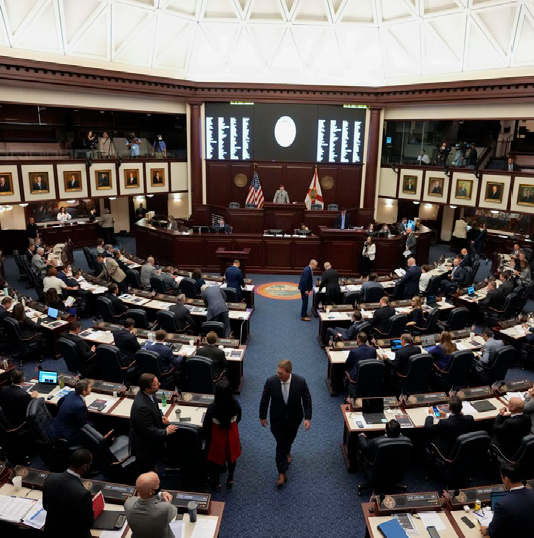The Vaccine Debate

The United States Supreme Court is set to take up a controversial issue to start the New Year – emergency federal regulations issued by the Biden administration requiring private employers to mandate vaccinations. Two edicts will be addressed.
The first, was a rule issued by the Centers for Medicare and Medicaid Services that requires workers in health-care facilities that receive federal Medicare and Medicaid funding to be vaccinated. Facilities are required to prohibit those workers who refuse to be vaccinated from working, and it is estimated that this particular rule impacts 17 million workers and 76,000 facilities.
The second rule was issued by the Occupational Safety and Health Administration (“OSHA”), and it requires employers with 100 workers or more to create programs in which workers either show proof of vaccination or undergo weekly testing for Covid-19, and unvaccinated workers would be required to wear a mask in the workplace. The OSHA rule is estimated to impact 84 million workers across every industry. While the OSHA rule does not require vaccination, it creates a barrier to employees that presumably would encourage employees to be vaccinated. And the failure of the employer to comply with this rule would subject them to significant fines.
These edicts were issued prior to the Omicron variant that is sweeping across the country today and it is impacting the vaccinated in great numbers. It is unclear whether the Supreme Court will consider this fact or any of the political considerations at play, but it is certain no matter the ruling, that the decision will be controversial.
Florida Legislative Update
With the 2022 Florida legislative session beginning on Jan. 11, there are no plans to reimpose Covid-19 related restrictions on public access.

Members of the legislature are following the progress of the coronavirus pandemic and will update restrictions on public access if they feel it is necessary. In that regard, on the health care front, Covid-19 will be on the agenda for the legislature including extending pandemic-related legal protections for health care providers and increased Medicaid funding.
On the education front, the legislature is expected to address the prohibition on teaching critical race theory in Florida classrooms, changing the school-accountability system and school choice, and changing school-board elections to be partisan after issues arose in 2021 involving school boards and student mask mandates.
The legislature is also expected to take up election law reform, including creating a state office that would investigate election-related crimes, and increasing criminal penalties for ballot harvesting.
With state coffers flush with cash due to the federal stimulus and unexpected tax collections from Florida’s rapid and
explosive economic recovery, state budgets are set to increase and tax cuts are planned to include suspending state gasoline taxes for a defined period of time and sales-tax holidays.
These are just a few of the issues expected to be addressed during a busy legislative session.

